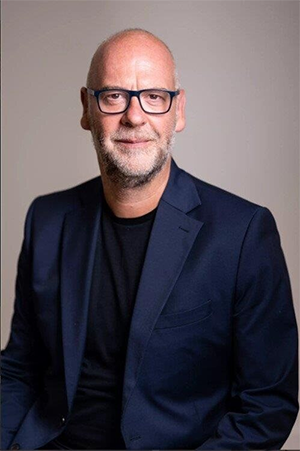
Why dialogue is essential for functional conflict. By David Liddle
Conflict is one of the most profoundly powerful phenomena that a human being can experience. It can define our relationships with others and our relationship with the world around us. When managed well, conflict can provide the tools we need to foster stronger relationships and to engender higher performing workplaces.
The problem is that for very many of us that is not the case. For example, employees in United States companies spend approximately 2.8 hours each week involved in toxic conflict. This amounts to around $359 billion in hours paid that are filled with managing conflict instead of positive productivity.
 It is clear to me – having spent the past 30 years as a leader, mediator, trainer, coach and culture change consultant – that it is not conflict that is the problem. The problem is the way we manage it.
It is clear to me – having spent the past 30 years as a leader, mediator, trainer, coach and culture change consultant – that it is not conflict that is the problem. The problem is the way we manage it.
The need to disagree better has never been greater
There are two types of conflict – only one of which is damaging and harmful.
Ultimately an office full of robots won’t experience conflict but conversely won’t display high levels of innovation, insight, and judgement. When they experience functional conflict, parties are engaged in constructive engagement and dialogue. They are focused on achieving an outcome that is mutually acceptable. This type of conflict is a normal part of a thriving organization and can help you to push forward strategy and develop more effective, productive teams.
Unfortunately, dysfunctional conflict is the type of destructive conflict most widely seen within our organizations. This kind of conflict is clearly bad for business, but also damaging for anyone involved. Dysfunctional conflict generates little, if any, benefits for parties, their colleagues, or organizations. If left unresolved, dysfunctional conflict will have a significant cost and an adverse impact on employees’ psychological, emotional, and physiological wellbeing.
How can leaders turn destructive conflict into constructive dialogue?
The key to building a positive workplace culture which transforms conflict from dysfunctional to functional is to find a shared meaning, a shared solution, and a way forward together, with dialogue at the heart.
Two of the biggest barriers organizations face when managing conflict are a lack of understanding of what conflict is and a fear of it. As a leader or a manager, you can make it less daunting for the parties by understanding that every conflict has a clear life cycle. Each stage of the conflict presents an opportunity for resolution, or the risk of escalation.
These stages are:
1) The pre-conflict stage. Conflict is predictable, and organizations and their employees benefit by anticipating it and putting plans in place to nip it in the bud.
2) The early conflict stage. Early warning signs include hostility and aggression, reduced communication, inappropriate behaviors and attempts to isolate one another. Use coaching skills to understand the concerns.
3) The mid-conflict stage. Often this is a challenging period for managers and HR and is typified by increased grievances, allegations and absences and stress for all parties.
4) The late stage conflict. Conflict erupts and becomes all consuming. Conflict can slowly ‘eat away’ to such a great extent that a previously well performing team begins to implode.
5) The post-conflict stage. Taking the time to reflect on the conflict gives everyone the chance to explore what they have learnt and what changes they will make going forward.
 Resolve conflict early with open dialogue.
Resolve conflict early with open dialogue.
I work with many leaders and managers who are learning how to transform conflict from dysfunctional to functional as early as possible in the conflict process: ideally at stages one or two. They use their coaching, mediation and listening skills to promote adult-to-adult dialogue and they encourage employees to engage in dialogue at an early stage as a cultural norm. This can be done with an informal early resolution meeting, where parties are encouraged to talk and listen to each other in a private space.
That is not to say conflict can’t be resolved at stages three and four. Of course, it can and processes such as independent mediation can be incredibly effective – I explain these below. However, my experience has led me to believe that the more done to manage conflict at an early stage, the less negative the impact.
It goes without saying that this isn’t rocket science! However over recent years I have observed fear creeping in that has inhibited such face-to-face dialogue.
Other routes to resolution
There may be times when a conflict has already moved into stage three or four, or issues are far too complex for an early resolution meeting. What I call a ‘resolution triage assessment’ can examine the seriousness of the issues being raised from the outset, the impact on parties, desired outcomes and previous attempts to resolve the situation.
Following a triage there are a wide range of conflict management processes that can be used to facilitate resolution, and these approaches from what I call the ‘resolution spectrum’ range from informal (an early resolution meeting) to formal (litigation). Steps in between include a facilitated roundtable conversation, mediation, investigation, or a formal resolution meeting.
Each approach on its own is powerful, however when combined as part of an organization-wide holistic and integrated conflict management system – with dialogue at the center – they merge to become a highly effective remedy to dysfunctional workplace conflict.
A resolution revolution
The key word for me – no matter the route to resolution chosen – is dialogue. Without dialogue conflicts worsen and become dysfunctional. With dialogue they can be resolved.
As leaders we should champion a person-centered, values-based approach for managing conflict at work. I work with organizations all the time which are rejecting litigation-inspired models of the past and are embracing a more flexible, humanizing, and common-sense approach to conflict management. Many are going a step further and embedding the principles of mediation, dialogue, empathy, interest-based problem solving and positive psychology across their organizations.
It is time to rid our organizations of the toxic disputes which are draining our people and organizations. We must put human relationships and importantly, dialogue, back into the core of our organizations.
David Liddle is founding President of the People and Culture Association (PCA), author and speaker. He is CEO and chief consultant at The TCM Group and author of Managing Conflict | Kogan Page 2nd Edition.